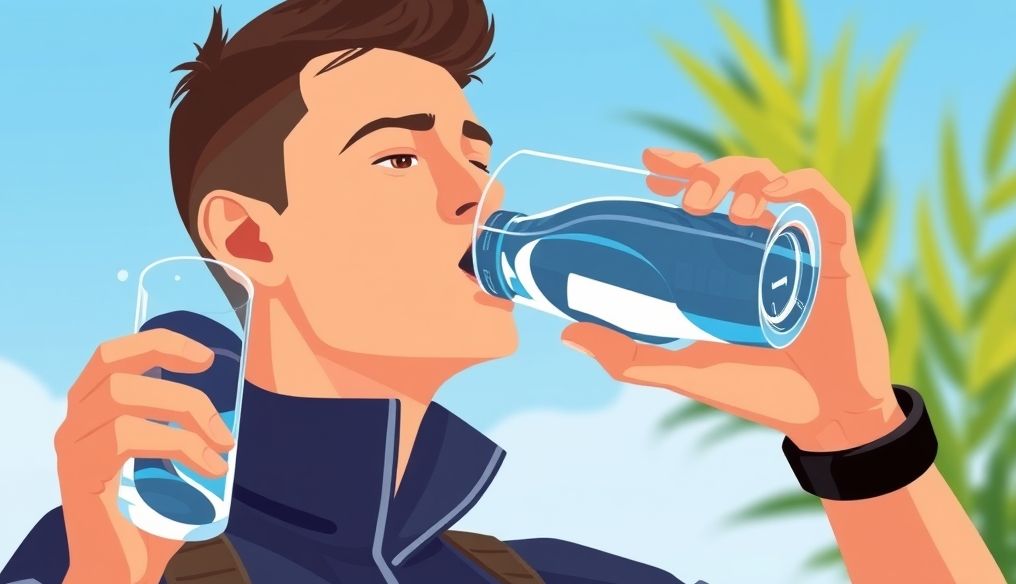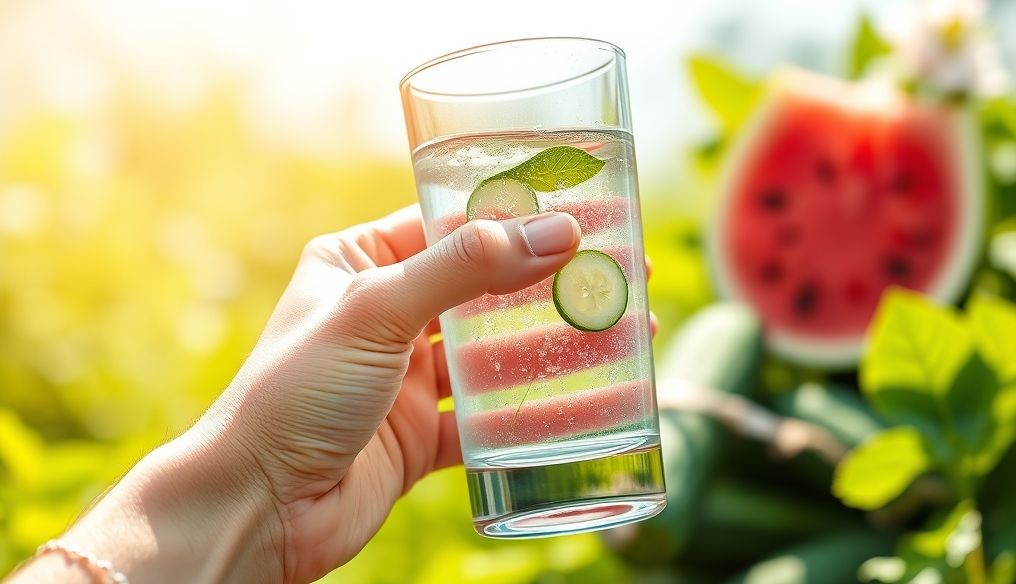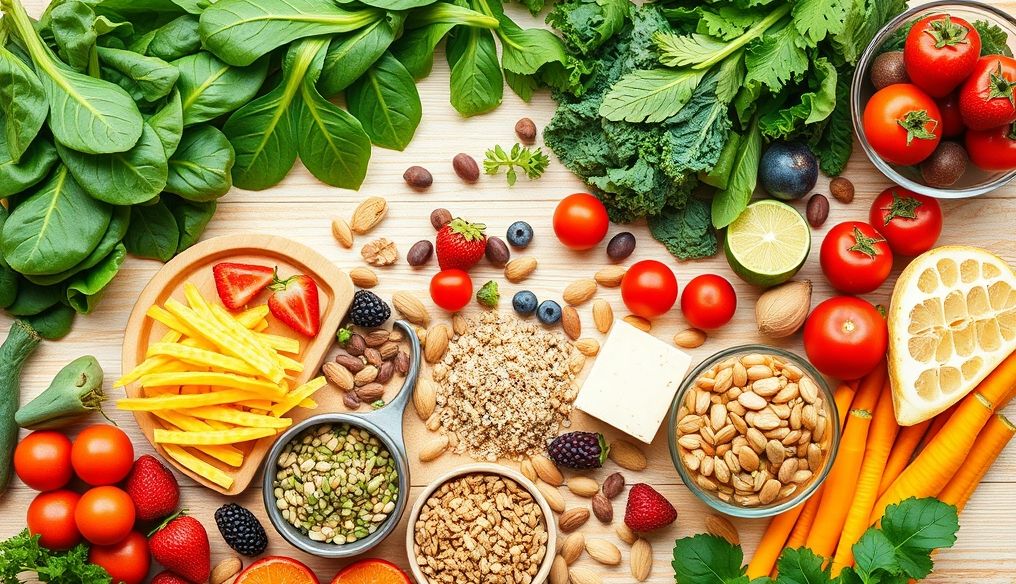Why is Drinking Enough Water Daily Essential for Your Health?
Water is the lifeline, and it is the essential component of our bodies. Water makes up approximately 55% to 78% of the human body, and it is necessary for almost every vital function. From regulating body temperature to transporting nutrients and eliminating waste, water plays a crucial role in maintaining our health and well-being. But, why is drinking enough water daily so essential? This is what we will answer in this article.
Chapter 1: Water and its Vital Role in the Body
What is Water and What are its Properties?
Water is a chemical compound consisting of two hydrogen atoms and one oxygen atom (H2O). It is characterized by unique properties that make it essential for life, such as its high ability to dissolve various substances, making it an ideal transport medium for nutrients and waste within the body. It also has a high heat capacity, which helps regulate body temperature.
Importance of Water for Various Body Functions
- Regulating Body Temperature: Water helps cool the body through sweating.
- Transporting Nutrients and Oxygen: Water transports nutrients and oxygen to cells and tissues.
- Eliminating Waste: Water helps remove waste and toxins from the body through urine and sweat.
- Lubricating Joints: Water keeps joints lubricated, reducing friction and pain.
- Protecting Organs and Tissues: Water acts as a protective cushion for sensitive organs and tissues.
- Improving Digestion: Water helps soften food and facilitate digestion.
Chapter 2: Benefits of Drinking Enough Water
Improving Brain Function and Concentration
Mild dehydration can negatively affect brain function, leading to impaired concentration and memory. Drinking enough water helps improve blood flow to the brain, which enhances cognitive functions and mental performance.
Study: A study published in the journal "Nutrients" found that mild dehydration reduces cognitive performance, especially in tasks that require attention and working memory.
Promoting Cardiovascular Health
Dehydration can increase blood viscosity, which increases the risk of cardiovascular disease. Drinking enough water helps maintain blood fluidity, reducing pressure on the heart and blood vessels.
Statistic: Studies indicate that people who drink enough water are up to 41% less likely to develop heart disease.
Improving Digestive Health
Water is essential for proper digestion. Water helps soften food and facilitate its movement through the digestive system, preventing constipation and other digestive problems.
Aiding in Weight Loss
Drinking water before meals can help you feel full, reducing the amount of food you eat. Water also helps increase metabolism and burn calories.
Tip: Drink a glass of water before each meal to help control appetite and lose weight.
Improving Skin and Hair Health
Water is essential for maintaining skin and hair hydration. Dehydration can lead to dry skin and brittle hair. Drinking enough water helps maintain skin and hair moisture, making them healthier and more radiant.
Chapter 3: Signs of Dehydration and How to Avoid Them
Common Symptoms of Dehydration
- Extreme thirst
- Dry mouth and throat
- Headache
- Dizziness
- Fatigue and exhaustion
- Reduced urination or dark-colored urine
- Constipation
How to Avoid Dehydration
- Drink enough water throughout the day, even if you don't feel thirsty.
- Eat foods rich in water, such as fruits and vegetables.
- Avoid diuretic drinks, such as alcohol and caffeine.
- Increase water intake when exercising or exposed to heat.
Chapter 4: Recommended Daily Water Intake
Factors Affecting Water Intake
The amount of water each person needs daily varies based on several factors, including:
- Level of physical activity
- Climate
- Health condition
- Age
General Recommendations for Water Intake
Generally, it is recommended to drink about 8 glasses of water a day (about 2 liters). However, you may need to drink more if you exercise or live in a hot climate.
Chapter 5: Different Sources of Water
Pure Water
Pure water is the best source of water. You can get it from the tap or from bottled water.
Other Beverages
You can also get water from other beverages, such as tea, coffee, and juices. However, you should remember that some of these beverages may contain sugar or caffeine, which can be harmful to your health.
Water-Rich Foods
Many fruits and vegetables contain a high percentage of water, such as watermelon, cucumber, and tomatoes. Eating these foods can help you increase your water intake.
Chapter 6: Tips for Increasing Daily Water Consumption
- Carry a reusable water bottle with you and fill it regularly.
- Set a reminder on your phone to drink water every hour.
- Drink a glass of water before and after each meal.
- Add flavor to water using fruits or herbs.
- Replace sugary drinks with water.
Chapter 7: Water and Kidney Health
Water plays a vital role in kidney health. It helps the kidneys filter waste and toxins from the blood, and prevents the formation of kidney stones. Drinking enough water reduces the risk of kidney disease.
Chapter 8: Water and Exercise
During exercise, the body loses significant amounts of water through sweating. It is important to drink enough water before, during, and after exercise to replenish lost fluids and prevent dehydration.
Water is your body's principal chemical component and makes up about 50% to about 70% of your body weight. Water helps regulate body temperature, transport nutrients and waste, and lubricate joints.
— Mayo Clinic
Conclusion
Drinking enough water daily is essential for your health and well-being. Water plays a crucial role in many body functions, from regulating body temperature to improving brain function and promoting cardiovascular health. Make sure to drink enough water throughout the day to stay healthy and active.




